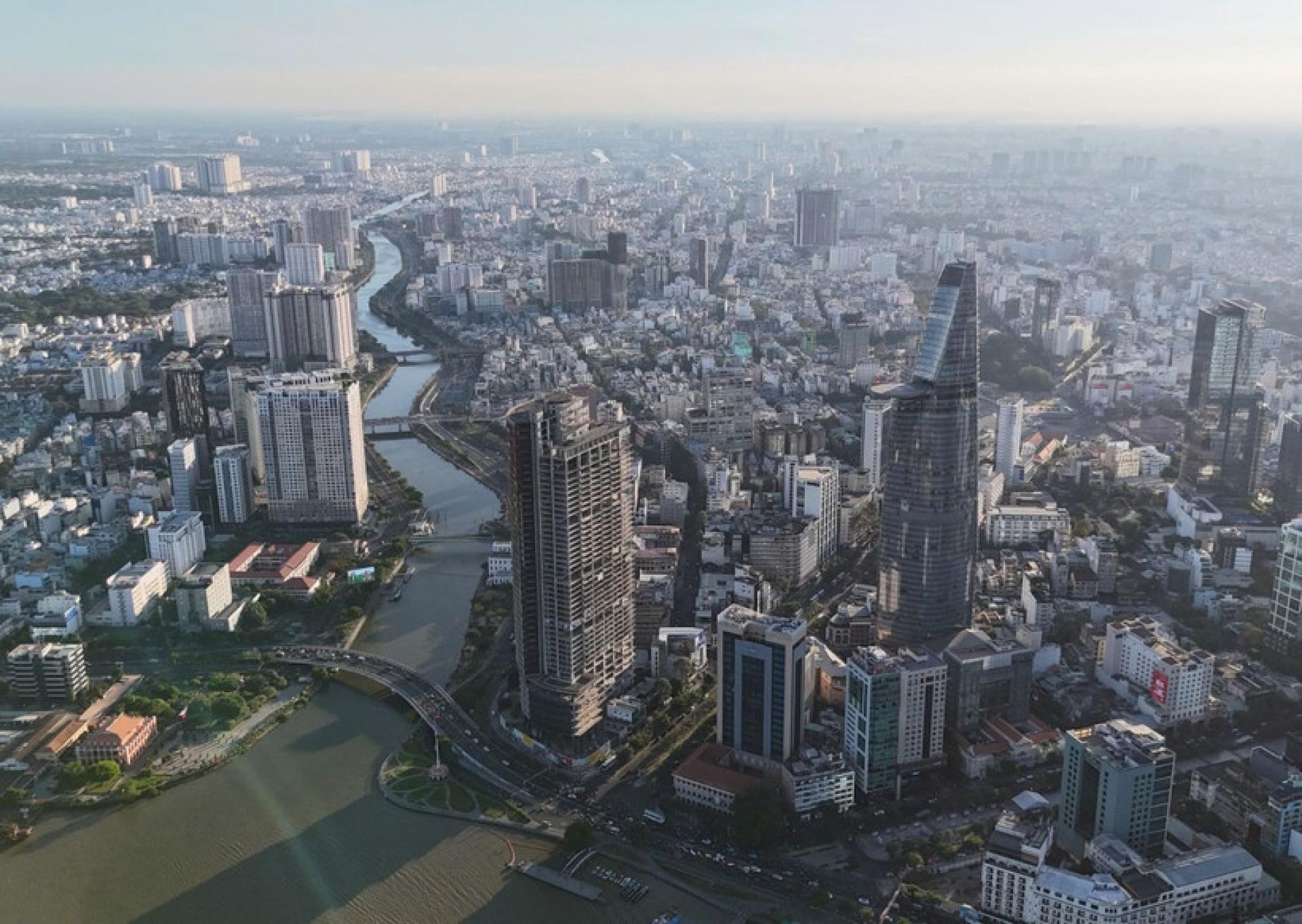(Ho Chi Minh City, 21st) With adjustments to administrative divisions, the newly merged Ho Chi Minh City is accelerating the promotion of industrial restructuring and reorganization, striving towards a future of green and intelligent manufacturing to become the leading city for national industrial development in Vietnam.
Currently, Ho Chi Minh City enjoys a solid foundation for development, including broader development space, clear strategic positioning, and synergistic advantages in technology, finance, regional planning, and human resources training, all supporting the city's move towards new industrial models.
In terms of development strategy, Ho Chi Minh City is not only optimizing the operation modes of traditional industrial parks but also attaches importance to regional interconnectivity, logistics system construction, high-tech applications, and the implementation of ESG (Environmental, Social, and Governance) standards in order to deeply integrate into the global value chain system.
According to Vu Van Sinh, chairman of the City Industrial Park Entrepreneurs Association, policies from the Communist Party of Vietnam are a strong lever to drive industrial upgrading. At present, Ho Chi Minh City has more than 60 export processing zones, industrial parks, and high-tech zones, many of which are facing problems such as aging infrastructure, low land-use efficiency, and difficulties attracting high-quality investment.
Ji Lai Industrial Park manager Zhu Wen Zhong pointed out that the merged Ho Chi Minh City should build a new generation of smart industrial parks, introduce ESG standards, develop a circular economy, and improve energy efficiency to meet global development trends. He believes industrial manufacturing combined with artificial intelligence, big data, and digital connectivity will help enterprises improve efficiency, reduce costs, and enhance their international competitiveness.
Urban economics expert Chen Weixing believes that the geographical expansion brought by the administrative merger provides a golden opportunity for industrial structure transformation in Ho Chi Minh City.
In addition, economic experts generally believe that if Ho Chi Minh City wants to become a regional hub for smart manufacturing, it should formulate long-term strategies focused on sustainable development and endogenous power. Specific measures include gradually relocating traditional industrial parks out of the city center to new industrial zones with complete infrastructure and centralized management, which can both ease urban environmental pressure and facilitate the construction of modern production lines and the application of digital technologies.
Nguyen Thu Hang, a representative of the Vietnam Innovation and Sustainable Development Research Institute, pointed out that green industrial transformation is an inevitable trend. Ho Chi Minh City has the conditions to develop a "circular industrial ecosystem" and suggests the government formulate cross-regional policies as soon as possible, encourage enterprises to implement technological transformation from the source, and fully implement ESG standards.
Nguyen Ngoc Hoa, chairman of the Ho Chi Minh City Business Association, believes that the transformation to smart and sustainable directions is a major long-term strategic project. It is necessary to effectively connect the manufacturing industry with the financial system to ensure capital liquidity and investment stability, injecting momentum into the new generation industrial ecosystem.
In terms of development strategy, Ho Chi Minh City is not only optimizing the operation modes of traditional industrial parks but also attaches importance to regional interconnectivity, logistics system construction, high-tech applications, and the implementation of ESG (Environmental, Social, and Governance) standards in order to deeply integrate into the global value chain system.
According to Vu Van Sinh, chairman of the City Industrial Park Entrepreneurs Association, policies from the Communist Party of Vietnam are a strong lever to drive industrial upgrading. At present, Ho Chi Minh City has more than 60 export processing zones, industrial parks, and high-tech zones, many of which are facing problems such as aging infrastructure, low land-use efficiency, and difficulties attracting high-quality investment.
Ji Lai Industrial Park manager Zhu Wen Zhong pointed out that the merged Ho Chi Minh City should build a new generation of smart industrial parks, introduce ESG standards, develop a circular economy, and improve energy efficiency to meet global development trends. He believes industrial manufacturing combined with artificial intelligence, big data, and digital connectivity will help enterprises improve efficiency, reduce costs, and enhance their international competitiveness.
Urban economics expert Chen Weixing believes that the geographical expansion brought by the administrative merger provides a golden opportunity for industrial structure transformation in Ho Chi Minh City.
In addition, economic experts generally believe that if Ho Chi Minh City wants to become a regional hub for smart manufacturing, it should formulate long-term strategies focused on sustainable development and endogenous power. Specific measures include gradually relocating traditional industrial parks out of the city center to new industrial zones with complete infrastructure and centralized management, which can both ease urban environmental pressure and facilitate the construction of modern production lines and the application of digital technologies.
Nguyen Thu Hang, a representative of the Vietnam Innovation and Sustainable Development Research Institute, pointed out that green industrial transformation is an inevitable trend. Ho Chi Minh City has the conditions to develop a "circular industrial ecosystem" and suggests the government formulate cross-regional policies as soon as possible, encourage enterprises to implement technological transformation from the source, and fully implement ESG standards.
Nguyen Ngoc Hoa, chairman of the Ho Chi Minh City Business Association, believes that the transformation to smart and sustainable directions is a major long-term strategic project. It is necessary to effectively connect the manufacturing industry with the financial system to ensure capital liquidity and investment stability, injecting momentum into the new generation industrial ecosystem.
